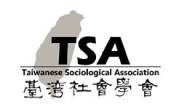中研院社會所6/19「台灣農業永續之路—兼論農地農用」演講
2025-05-06
【講題】:台灣農業永續之路—兼論農地農用
【講者】:陳吉仲(國立中興大學應用經濟學系特聘教授)
【主持】:吳齊殷(中央研究院社會學研究所研究員)
【時間】:2025年6月19日(四),12:30-14:30
【報名】:https://forms.gle/ovpdm8cE6UojzuR69
【地點】:中央研究院社會學研究所802會議室(臺北市南港區研究院路二段128號人文社會科學館南棟8樓)
【聯絡】:張小姐 ios.trtost@gmail.com
【演講簡介】
農業永續必備的條件是陽光、水、土地及農漁民,在台灣,除陽光外,農業永續受到極大挑戰。以農地而言,面對農地的價格偏高、農地品質受影響,以及農地數量的流失三大問題,透過農地的盤查、公佈,以及後續的管理與利用精進,才能陸續解決上述農地的問題。然而經濟發展所導致的農地流失和光電等影響,亦是農地政策所要面對,建議完成並發佈農地政策白皮書,在國土計畫架構下將農地總量維持在74-81萬公頃的水準。透過農田水利會升格公務機關,擴大灌區並完整農業生產管理中的精準滴灌,來解決乾旱和氣候變遷之影響。最後有土地、有水資源,還需要有農漁民在這塊土地從事農漁業生產,但所得無法提高就無法確保農漁民投入農漁業生產。提高農漁民所得的策略是同步降低農民的生產成本及災害或疫病的損失,並提高農產品的價格,近期我致力於將2016-2023年如何提高農漁民所得的具體政策及措施做分析,希望可以做為後續農業部門永續之參考。
【講者簡介】
講者曾任農業部部長。主要研究專長為氣候變遷對農業、水資源、能源之研究,農業政策及環境經濟等。
【活動說明及注意事項】
1.本場次演講規劃現場與線上參與形式。
2.線上參與連結於活動前以電子郵件另行寄送。
【Host】Chui-In Wu(Research Fellow, Institute of Sociology, Academia Sinica)
【Time】20250.06.19(四)12:30-14:30
【Register】https://forms.gle/ovpdm8cE6UojzuR69
【Venue】8F, Room802, Institute of Sociology, South Wing, Humanities and Social Sciences Building, Academia Sinica
【Contact Person】Ms. chang ios.trtost@gmail.com
【Brief】
Sunlight, water, land, and farmers/fishers are essential conditions for sustainable agriculture. In Taiwan, aside from sunlight, the sustainability of agriculture faces significant challenges. Regarding farmland, three major issues persist: high land prices, declining land quality, and the loss of farmland quantity. These problems can only be gradually addressed through comprehensive surveys, public disclosure, and ongoing improvements in the management and utilization of farmland. However, farmland loss due to economic development and the spread of solar energy installations also pose serious challenges to farmland policy. It is recommended to complete and publish a white paper on farmland policy and, under the framework of the National Spatial Plan, maintain the total amount of farmland at a level between 740,000 and 810,000 hectares. By upgrading Irrigation Associations into government agencies, expanding irrigation zones, and implementing precise drip irrigation as part of a comprehensive agricultural production management strategy, Taiwan can better cope with droughts and climate change. Ultimately, even with land and water in place, it remains essential to have farmers and fishers actively engaged in agricultural and fishery production. Without an increase in their income, sustaining their participation is not feasible. Therefore, strategies to boost income should focus on simultaneously reducing production costs and minimizing losses caused by disasters or diseases, while also working to increase the prices of agricultural products. I will analyze the specific policies and measures implemented between 2016 and 2023 to enhance the income of farmers and fishers, with the aim of providing a valuable reference for the sustainable development of Taiwan's agricultural sector.

【講者】:陳吉仲(國立中興大學應用經濟學系特聘教授)
【主持】:吳齊殷(中央研究院社會學研究所研究員)
【時間】:2025年6月19日(四),12:30-14:30
【報名】:https://forms.gle/ovpdm8cE6UojzuR69
【地點】:中央研究院社會學研究所802會議室(臺北市南港區研究院路二段128號人文社會科學館南棟8樓)
【聯絡】:張小姐 ios.trtost@gmail.com
【演講簡介】
農業永續必備的條件是陽光、水、土地及農漁民,在台灣,除陽光外,農業永續受到極大挑戰。以農地而言,面對農地的價格偏高、農地品質受影響,以及農地數量的流失三大問題,透過農地的盤查、公佈,以及後續的管理與利用精進,才能陸續解決上述農地的問題。然而經濟發展所導致的農地流失和光電等影響,亦是農地政策所要面對,建議完成並發佈農地政策白皮書,在國土計畫架構下將農地總量維持在74-81萬公頃的水準。透過農田水利會升格公務機關,擴大灌區並完整農業生產管理中的精準滴灌,來解決乾旱和氣候變遷之影響。最後有土地、有水資源,還需要有農漁民在這塊土地從事農漁業生產,但所得無法提高就無法確保農漁民投入農漁業生產。提高農漁民所得的策略是同步降低農民的生產成本及災害或疫病的損失,並提高農產品的價格,近期我致力於將2016-2023年如何提高農漁民所得的具體政策及措施做分析,希望可以做為後續農業部門永續之參考。
【講者簡介】
講者曾任農業部部長。主要研究專長為氣候變遷對農業、水資源、能源之研究,農業政策及環境經濟等。
【活動說明及注意事項】
1.本場次演講規劃現場與線上參與形式。
2.線上參與連結於活動前以電子郵件另行寄送。
【Topic】The Path to Sustainable Agriculture in Taiwan — With a Discussionon Farmland for Farming Use
【Speaker】Chi-Chung Chen (Distinguished Professor, Department of Applied Economics, National Chung Hsing University)【Host】Chui-In Wu(Research Fellow, Institute of Sociology, Academia Sinica)
【Time】20250.06.19(四)12:30-14:30
【Register】https://forms.gle/ovpdm8cE6UojzuR69
【Venue】8F, Room802, Institute of Sociology, South Wing, Humanities and Social Sciences Building, Academia Sinica
【Contact Person】Ms. chang ios.trtost@gmail.com
【Brief】
Sunlight, water, land, and farmers/fishers are essential conditions for sustainable agriculture. In Taiwan, aside from sunlight, the sustainability of agriculture faces significant challenges. Regarding farmland, three major issues persist: high land prices, declining land quality, and the loss of farmland quantity. These problems can only be gradually addressed through comprehensive surveys, public disclosure, and ongoing improvements in the management and utilization of farmland. However, farmland loss due to economic development and the spread of solar energy installations also pose serious challenges to farmland policy. It is recommended to complete and publish a white paper on farmland policy and, under the framework of the National Spatial Plan, maintain the total amount of farmland at a level between 740,000 and 810,000 hectares. By upgrading Irrigation Associations into government agencies, expanding irrigation zones, and implementing precise drip irrigation as part of a comprehensive agricultural production management strategy, Taiwan can better cope with droughts and climate change. Ultimately, even with land and water in place, it remains essential to have farmers and fishers actively engaged in agricultural and fishery production. Without an increase in their income, sustaining their participation is not feasible. Therefore, strategies to boost income should focus on simultaneously reducing production costs and minimizing losses caused by disasters or diseases, while also working to increase the prices of agricultural products. I will analyze the specific policies and measures implemented between 2016 and 2023 to enhance the income of farmers and fishers, with the aim of providing a valuable reference for the sustainable development of Taiwan's agricultural sector.




